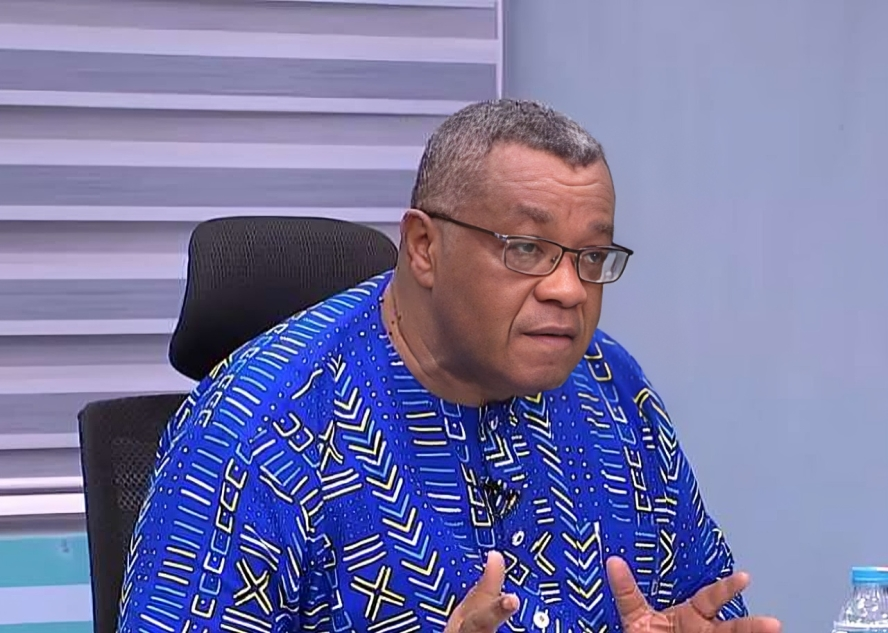Goosie Tanoh Drops Bombshell At 46th June 4th Revolutionary Anniversary
By Philip Antoh
On the 46th anniversary of Ghana’s pivotal June 4th Revolution, a seismic tremor hit the National Democratic Congress (NDC) as founding member Augustus Goosie Obuadum Tanoh delivered a scathing critique and a desperate plea: RESET NOW
Tanoh, a seasoned politician and the Presidential Advisor on the 24-Hour Economy, didn’t mince words. His message, drenched in revolutionary fervor, was clear – the NDC, a party born from the very principles of June 4th, has strayed dangerously from its core values of justice, probity, and popular sovereignty.
“The NPP’s rejection was a warning to all who seek to lead,” Tanoh declared, commending President Mahama’s “resetting the state.” But, he stressed, “Now our Party must also reset, rooted in justice, probity, and the people.”
Tanoh’s impassioned statement on this solemn occasion isn’t just a nostalgic reflection; it’s a direct challenge to the NDC’s leadership and a stark warning of the consequences of political complacency.
He highlighted the New Patriotic Party’s (NPP) landslide defeat in the 2024 general elections not just as a repudiation of their governance, but as a “cautionary tale” for the NDC itself.
“Arrogance, vanity of power, intolerance, elitism, corruption and the flagrant disrespect for the people’s interest in pursuit of private gain… was tellingly and fundamentally reprimanded by the Ghanaian electorate,” Tanoh thundered, a thinly veiled accusation against the very political class he now implores to change.
The veteran politician then ripped into the insidious practice of state-sponsored party financing, where “bloated contracts” allegedly line the pockets of political elites.
“The state must never be used as an instrument for financing political parties,” he asserted, advocating for transparent financing by members and well-wishers, not “covert access to public coffers.”
He hammered home the point that the state’s true purpose is to uplift its citizens, particularly the youth, through “job creation, education, and opportunity.” A betrayal of this trust, he implied, is a betrayal of the revolutionary spirit.
While acknowledging President Mahama’s “reset agenda” as “giving governance back to the people,” Tanoh was quick to caution that a presidential reset alone is a hollow gesture without a “parallel transformation within the NDC itself.” This is a clear call for deep-seated, systemic change, not just a facelift.
Drawing on history, Tanoh evoked the powerful legacy of Osagyefo Dr. Kwame Nkrumah, whose vision of pan-African unity and collective empowerment was tragically “subverted” by the 1966 coup.
This, he argued, paved the way for “elite-driven exploitation and declining national solidarity.” He lamented how “merit, competence and capacity were thrown out of the window” in favor of “subjective, often irrational criteria,” culminating in the very conditions that ignited the June 4th uprising.
Tanoh fiercely reminded the NDC that June 4th was no mere “mutiny” but a “transformative moment” – a “reawakening of ordinary citizens demanding radical accountability.” It was, he dramatically stated, “the chickens coming home to roost… an inferno that threatened to engulf everything.”
He lauded Flt. Lt. Rawlings and the “young men” who “dared to provide the leadership that ensured we did not tip into the abyss of generalised violence or civil war.”
Crucially, Tanoh warned against the NDC treating its revolutionary legacy as a “badge of entitlement.” Instead, it is a “sacred charge” to uphold the highest standards of governance. “The people will tolerate only so much and no more,” he cautioned, adding a chilling insight: “It is always difficult to tell when the breaking point has been reached from inside the power bubble.”
In a stark reminder of the fragile nature of power, Tanoh pointed to recent upheavals in the Sahel region, where public anger against exploitation and bad governance has toppled seemingly entrenched regimes.
“Neither the might of imperial powers nor the arms of the most sophisticated and potent military power on earth can withstand the force of a people united against oppression and injustice,” he declared, a stark warning to any who might underestimate the power of the masses.
Goosie Tanoh’s “radical reset” is no empty rhetoric. He laid out a concrete path: rebuild grassroots structures and decentralize power. He lamented the NDC’s transformation into an “electoral machine with power concentrated at the top,” bemoaning the decline of the party’s branches, which now function only during election seasons.
To resuscitate the party, he called for training a “new cadre of activists” to breathe life back into the branches and reconnect the NDC to the everyday struggles of Ghanaians.
His most audacious proposal? A “national ideological and constitutional reset convention within 18 months,” preceded by broad internal consultations starting at the grassroots.
This, he believes, is essential not only for internal reform but to prepare the NDC to lead Ghana into a “new era of just, people-centred governance.”
In a final, poignant tribute to Jerry John Rawlings and other revolutionary heroes, Tanoh urged his comrades to remember the “sacrifices that brought the NDC into being.”
Goosie Tanoh’s June 4th reflection is more than just a message of remembrance. It’s a fiery manifesto for the NDC’s structural and moral renewal, a passionate call to embrace a transformative future, and a desperate plea to return to the principles that once truly distinguished the party.
The question now is: will the NDC heed the warning, or will Goosie Tanoh’s words fall on deaf ears, inviting the very “revolutionary wrath” he seems to foreshadow? The clock is ticking.

